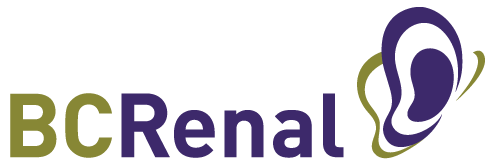 As part of a novel research project, a group of nephrologists, dietitians and statisticians came together to explore unique questions related to oral supplement use in non-dialysis kidney patients in British Columbia. The results show that oral supplement use is associated with improved outcomes for some key indicators of nutritional status.
As part of a novel research project, a group of nephrologists, dietitians and statisticians came together to explore unique questions related to oral supplement use in non-dialysis kidney patients in British Columbia. The results show that oral supplement use is associated with improved outcomes for some key indicators of nutritional status.
As well, the study sheds light on differences in outcomes and prescribing practices across health regions.
Nutritional supplements can be especially important for kidney patients, who may be nutrient-deficient because of their condition or dietary restrictions. However, much research into nutritional supplements in the past has focused on dialysis patients, rather than non-dialysis patients.
Dani Renouf is the lead for the dietitian’s group with BC Renal. In 2018, she was approached about co-leading a new research project with Dr. Michelle Wong. Wong is a nephrologist who had conducted dietary research in kidney patients with the Renal Research Institute in New York City, and later was awarded funding through the Michael Smith Foundation for Health Research to conduct nutritional research with BC Renal.
Renouf says that finding a doctor like Wong, who is interested in studying diet and nutrition, is like winning the lottery. “I thought that this was such an incredible opportunity, because as dietitians we don’t always have access to research resources and partnerships.”
The team set about analyzing data collected over a 10-year period through PROMIS, BC Renal and BC Transplant’s comprehensive patient registry and clinical information system. Their goals included: exploring general prescription rates across the province, outcomes associated with oral supplement use, and patient subgroups that benefit most from supplements.
A key finding was that oral supplement use was associated with improvements among non-dialysis patients in terms of weight change and biochemical nutritional and inflammation markers.
When the group conducted a cluster analysis, identifying subgroups of patients with similar characteristics, the results showed differences in responses to nutritional supplements among the different clusters. For example, patients with the highest levels of an inflammation marker appeared to respond to supplements more favourably than those with lower levels of inflammation. Wong notes that these findings suggest individualizing the nutritional management that patients are prescribed.
In terms of prescribing patterns across the province, the percentage was consistently around 9% over a three-year follow-up period. However, the team found some differences in oral supplement prescription rates across health regions, which was partly explained by the differences in number of dietitians. Follow up interviews with the dietitians will help to identify other causes of variation.
Renouf and her colleagues are planning to further explore why these disparities exist, and are interested in continuing to study oral supplement use by analyzing PROMIS data, but in the dialysis population. It will be a valuable chance for the dietitians and clinicians to continue to work together.
“As a dietitian, having this unique opportunity to work with this collaborative team has been a real privilege,” says Renouf.
Wong similarly voices her appreciation for the opportunity to partner with renal dietitians.
“It has been really fulfilling to be able to interact with the dietitians and use their expertise to inform the research questions, or how we approach research questions, and to get their feedback,” she says. “In turn, the knowledge gained can help to inform dietitian practice and policies.”
For the next stage of their research partnership focusing on dialysis patients, the team is bringing on board a dietitian who specializes in nutrition in dialysis patients. Additionally, through Wong’s participation in the International Society of Nephrology Emerging Leaders Program, she aims to continue to increase collaborations between nephrologists, dietitians and other allied health professionals.

